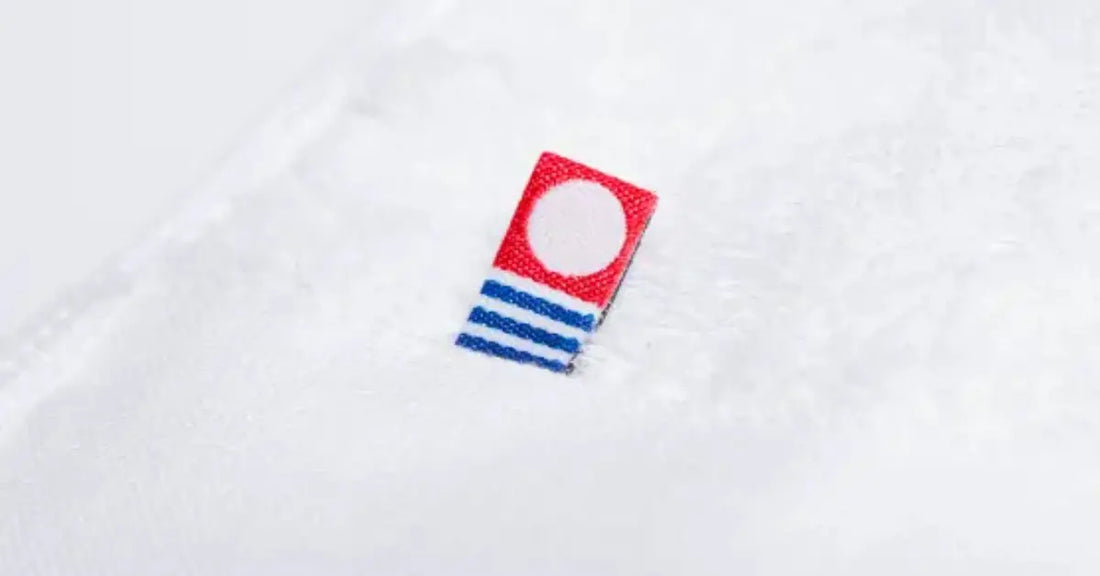If you’ve never thought much about towels, that’s fair. Most people don’t. You grab one after a shower, it dries you off, and then it disappears into the laundry pile. But every now and then, you come across a towel that just feels... different. Softer. More absorbent. Better made. And if you’ve ever used an Imabari towel, you probably know what I mean.
This isn’t just another Japanese towel. It’s the Japanese towel—at least, that’s what many people would say. And maybe they’re right. The thing is, the Imabari towel didn’t earn that reputation overnight. It worked for it—quietly, over time.

The Unlikely Rise of a Towel Empire
Imabari wasn’t always the towel capital of Japan. Back in 1894, a man named Heisuke Abe set up four looms in this quiet port town, hoping to make something useful out of local Iyo cotton. The early results? Not great. Compared to big textile hubs like Osaka, Imabari’s towels were rough, scratchy, and forgettable.
But slowly—and with stubborn dedication—things changed. By the 1920s, better dyeing techniques and tighter weaves helped Imabari become Japan’s second-largest towel producer. By 1960, it had taken the number one spot.
Of course, it wasn’t all smooth sailing. Cheap imports in the ’90s nearly wiped out the industry. Production dropped by 80%. That’s when the locals made a bold decision: if they couldn’t compete on price, they’d compete on perfection. The Imabari Towel Brand Project—and its now-iconic red-and-blue logo—was born not just to survive, but to preserve craftsmanship.
Today, these towels are a point of pride—made with spring water from the Sojagawa River and tested for absorbency down to the second. It might sound excessive, but once you feel the difference, it makes sense.
What Actually Makes an Imabari Towel So Good?
Let’s talk specifics. Because it’s not just hype. There’s real craft involved—real reasons why you might go out of your way to buy a Japanese bath towel from Imabari instead of grabbing one off a department store shelf.
1. The Cotton
Most Imabari towels use long-staple cotton. That might sound technical, but it basically means softer, stronger fibers—the kind that doesn’t fuzz up or wear thin after a few washes. It’s smooth in a way that feels intentional, like it was made to last—not just to look good in the store.
Some people compare it to Egyptian cotton, and sure, there’s a similarity. But Imabari feels more... structured. Not stiff—just composed. You’ll feel it.
2. The Weave
You know how some towels feel like they’re just pushing the water around? Imabari towels don’t do that. The weave is tight and often uses double-twisted yarn. That makes them more absorbent and, surprisingly, more durable too.
What’s interesting (in a good way) is that they’re not overly thick. They strike this perfect middle ground—plush but not bulky. Everyday luxury, you could say.
3. The Water
This part might sound like a stretch, but stay with me. Imabari uses soft spring water from the Sojagawa River during the dyeing process. That softness helps the colors set better and keeps the towels smooth. So the towel you buy on day one feels more or less the same after dozens of washes. That doesn’t happen by accident.
Even if you’ve never thought about water quality in manufacturing (and honestly, who has?), you’ll notice something’s different.
4. The Finish
Before an Imabari towel hits the shelves, it’s washed and brushed multiple times to remove loose fibers. That means no awkward “breaking-in” phase. No shedding. No rough patches. Just soft, ready-to-use comfort right out of the package.

Why They Make Great Gifts
You probably don’t think of a towel as the first thing to buy when you’re looking for a gift—but hear me out.
1. They’re Everyday Luxuries
An Imabari towel isn’t something you use once and forget. It becomes part of your daily routine, adding a little comfort in an unexpected place. Gifting one says, I thought about what you’d actually use—but also wanted to give you something that feels good.
2. Universally Useful
Weddings, new homes, baby showers—these towels work for all of them. They’re practical, yes, but also beautifully made. And the fact that they come with that quiet legacy of craftsmanship adds a little more meaning.
3. There’s Thought Behind It
The water, the cotton, the finishing—all those things add up to something that feels personal, even if the recipient doesn’t know every detail. And fun fact: “Imabari” sounds a bit like ima, naoru in Japanese, which loosely means “get well soon.” A nice little bonus if you’re gifting it to someone recovering or starting fresh.

Are They Worth the Price?
Let’s be real: a single bath towel might set you back $60—maybe more. That’s steep. But—and this is the key—they last. Sometimes for decades. Unlike bargain towels that fray or thin out, these hold up.
Think of it like a good knife or a leather bag: you’re paying for something that gets better with time. Plus, there’s the intangible factor. Wrapping yourself in one feels… indulgent. Like your morning routine just got a quiet upgrade.
(That said, if you’re the type who loses towels constantly, maybe start with a hand towel.)
Final Words
In the end, it’s not just about owning a towel—it’s about having one that makes everyday moments feel a little more special. That’s what Imabari towels do best. Once you try one, you’ll wonder why you waited so long.
They’ve earned their reputation for a reason. If you’re curious to feel the difference, there’s no need to travel to Japan—Japarcana delivers certified, authentic Imabari towels right to your doorstep.
FREQUENTLY ASKED QUESTIONS
1. Why are Imabari towels so popular in Japan?
Imabari towels are soft, absorb water well, and last a long time. They’re made with special cotton and clean spring water in Imabari, Japan. Each towel is carefully tested before it’s sold.
2. What’s special about Japarcana’s Imabari towels?
Japarcana sells real Imabari towels that are soft, high-quality, and ready to use right away. They don’t shed, and we ship fast to many countries.
3. Are Imabari towels good gifts?
Yes! These towels feel nice and come in pretty packages. They make great gifts for birthdays, weddings, or housewarming parties.
4. Are Imabari towels worth the price?
Yes. They cost more than regular towels, but they last for years and feel better every time you use them. It’s like a small daily luxury.


